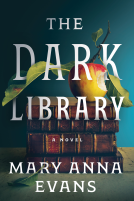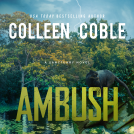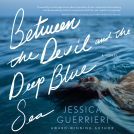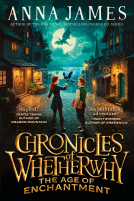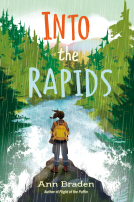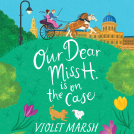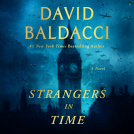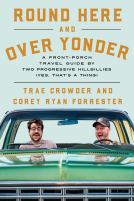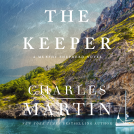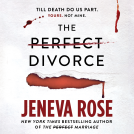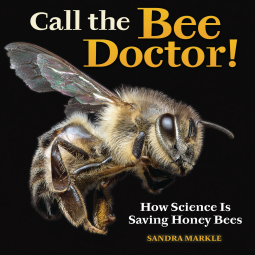
Call the Bee Doctor!
How Science Is Saving Honey Bees
by Sandra Markle
This title was previously available on NetGalley and is now archived.
Send NetGalley books directly to your Kindle or Kindle app
1
To read on a Kindle or Kindle app, please add kindle@netgalley.com as an approved email address to receive files in your Amazon account. Click here for step-by-step instructions.
2
Also find your Kindle email address within your Amazon account, and enter it here.
Pub Date Oct 01 2024 | Archive Date Aug 31 2024
Lerner Publishing Group | Millbrook Press ™
Talking about this book? Use #CalltheBeeDoctor #NetGalley. More hashtag tips!
Description
Honey bees are among the world’s most important insects. They help pollinate many of the crops we depend on for food. Without them, the global food supply would be in great danger.
In 1998, beekeepers in Europe made a shocking discovery—almost all of the honey bees had disappeared from their hives. Several years later, beekeepers in the United States found that many of their honey bees had vanished too. Scientists called this disappearance colony collapse disorder (CCD), and at first, no one knew why it was happening.
It was time to call the bee doctors! Join author Sandra Markle as she explores what apiologists—scientists who study bees—have learned about CCD and what they are doing to prevent it from spreading further.
Available Editions
| EDITION | Other Format |
| ISBN | 9798765626795 |
| PRICE | $33.32 (USD) |
| PAGES | 48 |
Available on NetGalley
Featured Reviews
 Myra Z, Educator
Myra Z, Educator
In this updated look at how scientists are continuing to work on solving the problem of colony collapse disorder, author Sandra Markle explains how scientists are examining the case by closely examining clues, performing experiments to test their ideas, and offering three useful "prescriptions" to beekeepers. Excellent, helpful illustrations support the clearly written text. This is a masterfully written book. It is perfect for middle grade students, who will gain insight into the scientific process and to the importance of the work.
 Clay C, Librarian
Clay C, Librarian
While there are many wonderful picture books about bees, and more than a few fantastic books intended for an adult reader, up until now there has been little to bridge the gap between the two. Call The Bee Doctor has bright and engaging photos, a solid format that leads the reader through the challenges facing bee colonies today and the various techniques being explored to meet those challenges, and an informative "find out more" section with helpful index. This volume would be a perfect addition to a library's middle grade non-fiction collection, offering a step between picture books like Charlotte Milner's Bee Book and the more text based Where Have All The Bees Gone by Rebecca Hirsch. Thank you to NetGalley for access to this informative arc!
Call the Bee Doctor!
How Science Is Saving Honey Bes
From the Series Sandra Markle’s Science Discoveries
Written for students in grades 4-6.
In 1998, European beekeepers discovered honeybees had disappeared from their hives. A few years later beekeepers in the United States discovered the same thing, honeybees had vanished from their hives also. The disappearances are called CCD/Colony Collapse Disorder; no one knew why it was happening. Honeybees are important to the world; they pollinate our crops. Without crops we have little to nothing to eat.
Scientists that study bees are called apiologists, they are also called the bee doctors. They have been studying CCD and how to prevent it.
Thank you for providing a copy of this book for review.
Readers who liked this book also liked:
Anna James; Illustrated by David Wyatt
Children's Fiction, Middle Grade

